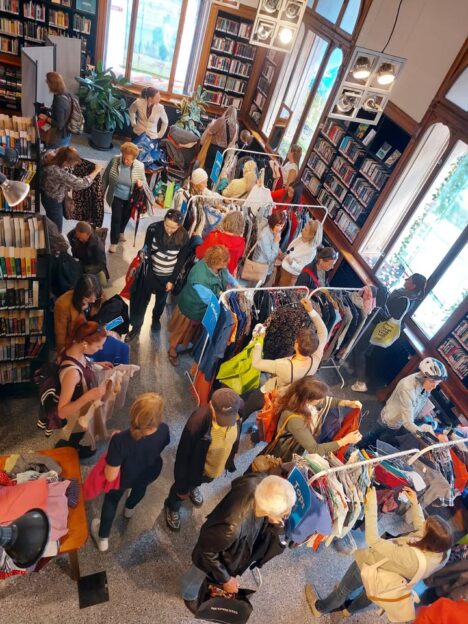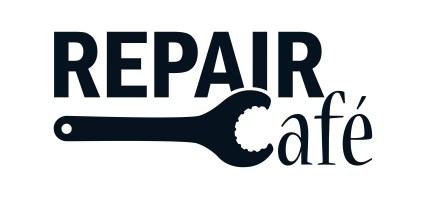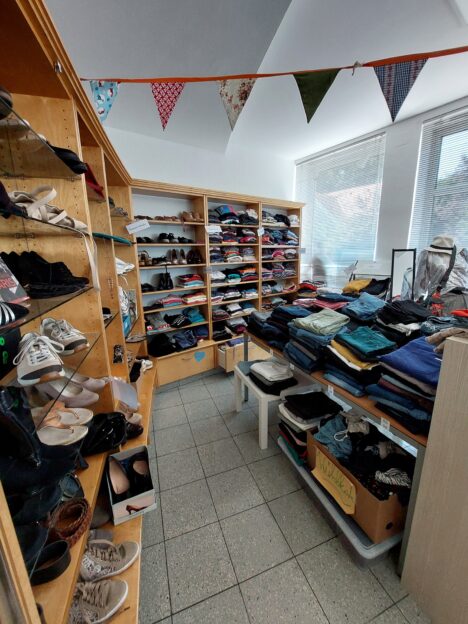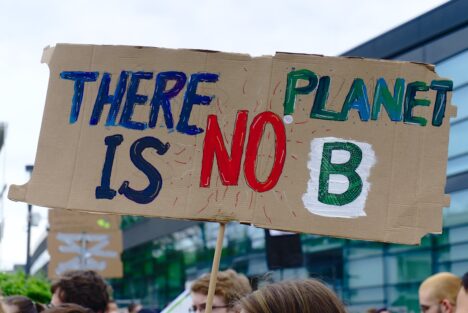Original post by lau on February 15, 2023. Translated by Lisa Scheer in 2023/24.
Disclaimer: Some of the links in this post might redirect you to a site in German. Feel free to use Machine Translation (such as DeepL or Google Translate) to get the information provided on these sites.
What do wardrobes in Austria look like?
Austrians wear around half their clothes occasionally to never. More than a fourth thereof – that’s up to 185 million clothing pieces – often spend their time unused in Austria’s wardrobes. A representative survey by Greenpeace and Arbeiterkammer Wien (the Chamber of Labour in Vienna) on fashion consumption has shown this. Fast fashion and cheap prices still determine our shopping behaviours. A grand majority of the participants wishes for policy measures to reduce the negative effects of fast fashion. 91 percent of people questioned wish for a Supply Chain Act, 86 percent for a prohibition of destruction of new goods. Greenpeace Austria and Arbeiterkammer Wien call on policymakers to implement these laws quickly. Alternative solutions, such as repair, second hand and exchanges should be expanded and promoted.
You can find the factsheet including the link to the long version of the survey in German here:
„Today’s trends already end up in the trash by tomorrow. The industry of Fast Fashion promotes climate change, pollutes rivers and oceans and is responsible for the deplorable working conditions of millions of people. The CEOs and politicians responsible have to stop this madness and have to reform the fashion industry. In a climate friendly world, we do not buy throw-away clothing but are able to buy second hand clothing in many stores, borrow fashion, exchange it and repair it. We need the right policies for this,“ demands Lisa Panhuber, expert on consumption at Greenpeace Austria.
The results of the survey show that Austria is far from this climate friendly worlds: Every second person questioned regularly shops at Fast Fashion stores and orders clothes there online. Only 17 percent of the people questioned have regularly bought second hand clothing. While 80% of people consider prices as an important factor when buying, only 40% of people focus on environmental and social standards when shopping. Compared to a survey in 2019, standards focusing on the environment have become more important though.
Destruction ban and supply chain law urgently required
„The consciousness and the readiness of people to consume more sustainably alone will not be enough. The high price of fair fashion, the low offer of second hand, clothing repairs and exchanges and the social pressure due to constant advertisements of new trends play a significant role. Legal minimum standards, limits for Fast Fashion and state funding for alternative ways of consumption are desperately needed and the people surveyed agree,“ says Nina Tröger, consumption researcher within the Chamber of Labour’s Consumer Policy.
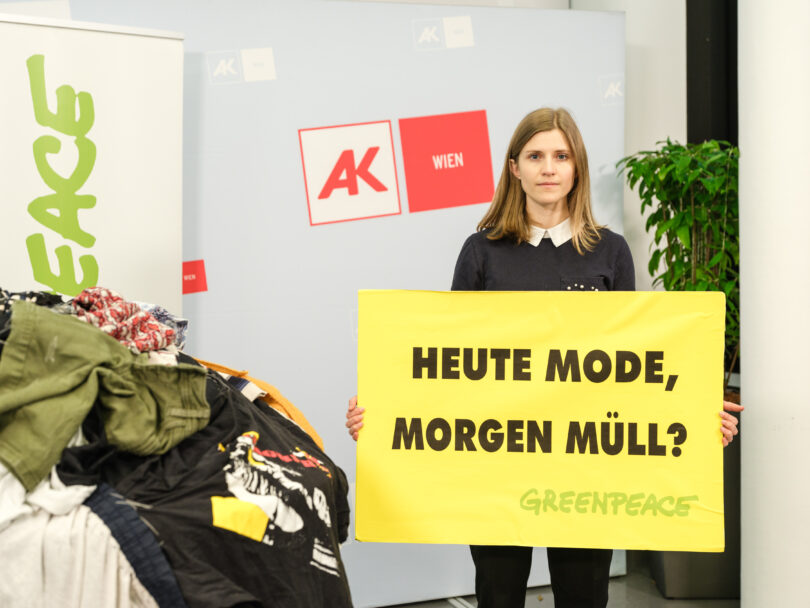
To reduce the climate-damaging and social aspects of Fast Fashion, Greenpeace and Arbeiterkammer Wien demand a quick implementation of the announced law for the destruction ban of new products. An EU-wide supply chain law has to lead to enterprises openly and transparently showing the stations along their supply chain. They also have to be responsible for human rights violations, health damages and damages to the environment caused by their products. To protect consumers from greenwashing , the labour chamber and Greenpeace demand clear legal requirements and controls on sustainability promises made in advertisements and in their products.
To conclude – survey on fashion consumption:
- The interviewees spend 792 Euros on clothes on average each year.
- About half of our clothes are only worn occasionally to not at all.
- About 185 million pieces of clothes lie around unused in the wardrobes of Austrians.
- Most of the interviewees claim to focus on functionality (92 percent) and high-quality workmanship (85 percent). But also, cheap prices are very or kind of important when buying clothes for 78 percent. Fewer interviewees named higher environmental (44 percent) or social standards (40 percent) as reasons for buying clothes.
- Half of the interviewees shop in stores of big fashion companies such as H&M or Zara (49 percent) or in online shops and catalogues of big merchants such as Amazon or Shein (48 percent). Half of these people claimed to like ordering online because it is practical.
- Among interviewees there was a consensus (92 percent) that people buy too many clothes.
- Interviewees claimed to have bought 18 pieces of clothing during the last year on average (this is way below the 50 to 60 pieces of clothes per person and year that are indicated by balances of trade).
To conclude the survey on fashion consumption – What do we need?
- A strict EU-wide supply chain law along global supply chains
- Prohibition of destruction of new goods
- Limitations for Fast Fashion
- Expansion and promotion of alternative offers, such as repairs, second-hand and exchanges
To conclude survey on fashion consumption – tips for consumers
- Wear clothes for as long as possible: „The most sustainable garmet is the one already in your wardrobe!“
- (Have) repairs (done)
- Pass on or sell – but check what happens with your clothes then
- Shop second hand! It doesn’t have to be new all the time.
- Quality instead of quantity – buy high value and timeless clothes!
- Avoid returns when shopping online: Returns cause high environmental impacts. In the worst case, clothes will even be thrown away. When shopping online, use digital measuring techniques to find the right size.
Sources: Umfrage Modekonsum 2023, Arbeiterkammer Wien
Fotocredit: © Mitja Kobal / Greenpeace
Anmerkung der NiG-Redaktion:
Falls du keine wichtigen Beiträge oder Termine von uns verpassen willst, abonnier doch bitte gerne unseren Newsletter! Er kommt unregelmäßig und nicht zu häufig – versprochen. Oder schau regelmäßig in unseren Veranstaltungskalender.
Wenn dir gefällt, was wir auf dieser Plattform tun, nämlich bereits seit 2017 über Nachhaltigkeit, Umwelt- und Klimaschutz zu informieren, dann unterstütz uns doch bitte auch finanziell, um unsere Website in dieser Qualität und Fülle weiterführen zu können – uns hilft jeder Beitrag!
Verein „Nachhaltig in Graz“
BIC: STSPAT2GXXX
IBAN: AT20 2081 5000 4200 1552
Verwendungszweck: Spende/Sponsoring (Mehr zum Sponsoring hier)
Du kannst dir auch gerne unsere kostenlose App aufs Handy laden, damit kannst du Informationen, Veranstaltungen und vieles mehr entdecken: App Nachhaltig in Graz






